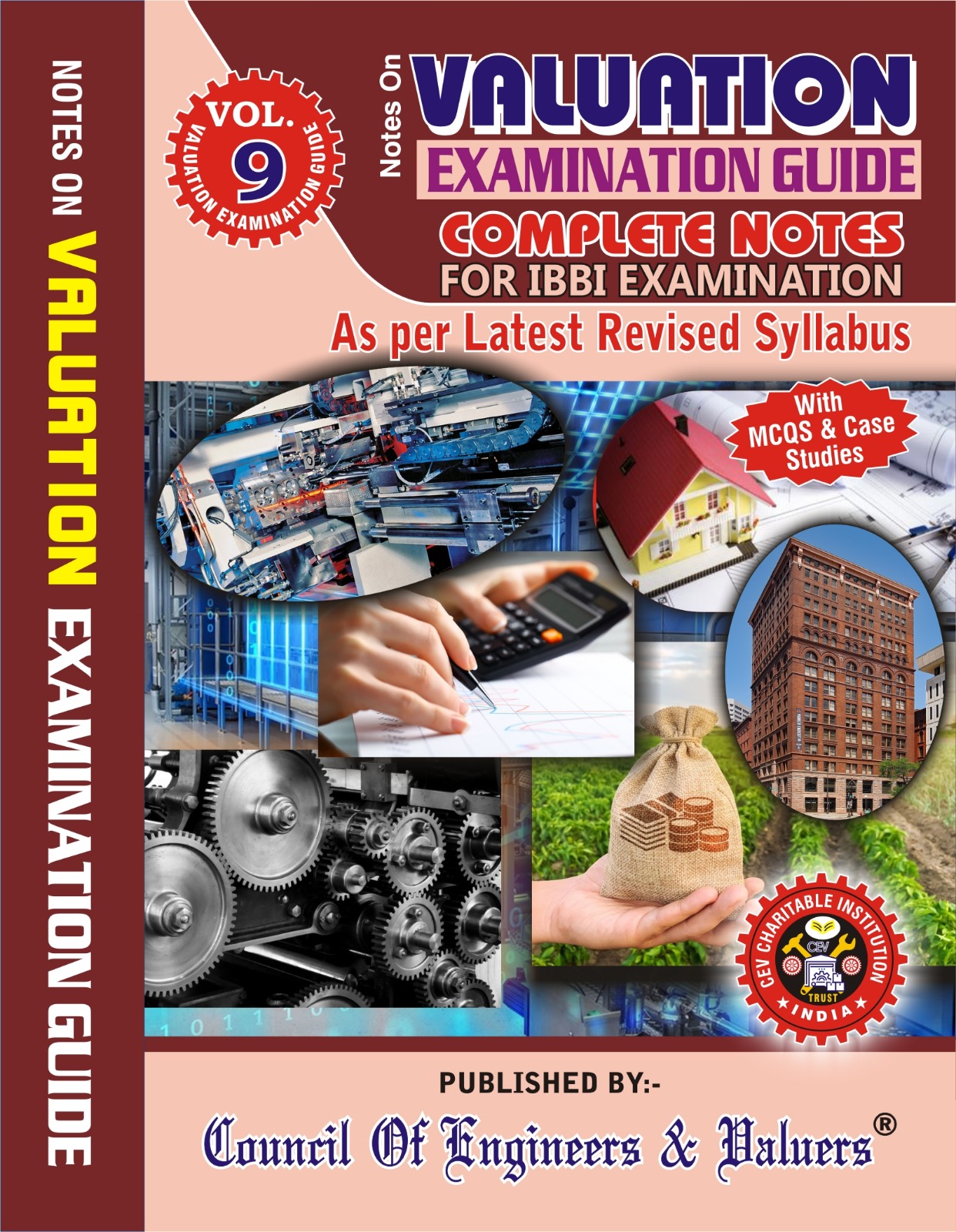FAMILY TRUST PROPERTY VALUATION
Saturday Brainstorming Thought (297) 18/10/2025

By:-Er. Avinash Kulkarni
9822011051
Chartered Engineer, Govt Regd Valuer, IBBI Regd Valuer,
Rera Certified Consultant, Black Money Act Regd Valuer
The valuation of family trust property is a formal process conducted by a certified professional to determine the assets current market value
This is a crucial fiduciary duty for trustees and is often required for tax compliance, equitable distribution and effective trust administration
Necessity of Valuation of family trust property
1) Transferring property into the trust
An appraisal is required to establish the property’s fair market value at the time of settlor transfers it in to the trust
This is essential for calculating potential stamp duty and ensuring legal compliance
2) Estate Planning
Valuations are needed to support strategic tax planning and ensure the proper execution of the estate plan
3) Dissolving the trust
A valuation is required to determine the current worth of assets for fair distribution among beneficiaries
This helps prevent disputes and conflicts over unequal distribution
4) Selling trust property
An updated appraisal establishes the current market value before selling the property, which is crucial for determining the tax basis for capital gains
5) Refinancing or buying out situations
If one beneficiary wants to buy out another’s share of the property, a certified appraisal ensures the buying out is based on fair market value
Authority to conduct valuation of family trust property
The property valuation for a family trust should be conducted by a certified, independent professional
1) Registered Valuer
The Indian Trusts Act of 1882 and other related legislation require valuations by authorized professionals
2) Government Appointed Body
In some cases, a government appointed body may also be responsible for issuing a valuation certificate
3) Insolvency and Bankruptcy Board of India (IBBI)
For assets held in trusts under the Companies Act, the IBBI has the authority to appoint and regulate registered valuers
Procedures for valuation of family trust property
1) Hire a certified valuer
Search for a government approved or certified professional specializing in property valuation
You can confirm their credentials through relevant regulatory bodies
2) Gather required documents
The valuer will need access to specific property documents, including
A) Property deed for ownership proof
B) Building plan showing the structure and layout
C) Tax receipts to prove payment of property taxes
D) Encumbrance certificate to verify there are no outstanding legal claims
E) Any prior property valuation report
3) Schedule a property inspection
The valuer will physically inspect the property to assess its condition, age, size, location and other features that influence its market value
4) Receive the valuation report and certificate
The valuer will provide an official valuation report detailing their findings and certifying the current market value
The format of this certificate includes key details like the property description, valuation date, market value and the valuers signature
Information required in valuation of family trust property
1) Location
The neighborhood’s desirability, proximity to amenities and general market trends significantly affect the value
2) Size and condition
The property’s size, layout and age are all taken into account
Any recent upgrades or renovations can increase the value
3) Comparable properties
Valuers analyze recent sales data of similar properties in the area to arrive at a fair market value
4) Market trends
The current real estate market, interest rates and overall economic conditions are also factored into the valuation
Meaning of Family Trust
A family trust is a private trust created to hold, manage and distribute assets for the benefit of designated family members or beneficiaries
Family trust is governed by the Indian Trusts Act 1882 and subject to specific tax implications under the Income Tax Act
Family Trusts provide a structured way to manage and distribute wealth
Primary Aim of Family Trust
The primary aim is often to protect family assets, provide for dependents and ensure orderly distribution of wealth across generations
Structure of Family Trust
In India, Family Trusts are structured through a Trust Deed, which is a legally binding document that defines the terms of the Trust, its beneficiaries and the role of Trustee
Main Types of Family Trusts
1) Revocable Trust
The creator remains the right to modify or revoke the Trust
2) Irrevocable Trust
Once established, it cannot be altered or revoked by the creator, offering stronger asset protection and tax benefits
Other role players can definitely alter or modify the Trust depending how the trust is set up
Family Trusts may include movable and immovable property and are often used as part of a broader succession planning strategy
Types of Family Trusts in India
1) Private Family Trust
A private family trust benefits specific family members and defines the terms of beneficial ownership
The Trust Deed specifies the distribution of income and assets, ensuring that only family members benefit
2) Discretionary Trust
A Discretionary Trust allows the Trustee to determine how and when Beneficiaries receive benefits
This type of Trust provides flexibility in asset distribution and is ideal for managing wealth on a case-by-case basis
3) Revocable and Irrevocable Trusts
A) Revocable Trust
It offers flexibility as the Trust creator can change or dissolve it at any time
B) Irrevocable Trust
It cannot be altered by the creator, providing robust asset protection and tax exemptions
4) Private Discretionary Trust
In Private Discretionary Trusts, Trustees have full discretion over distributing income among beneficiaries, providing flexibility for complex family arrangements
Benefits of Family Trust
1) Asset Protection
Family Trusts help protect personal assets from creditors, legal claims and family disputes, preserving family wealth for future generations
2) Succession Planning
A Family Trust facilitates a structured asset transfer to designated family members and beneficiaries, preventing disputes that may arise over asset distribution
3) Preserving Family Values
Family Trusts can serve as a means to pass down family values, ensuring that assets benefit specific family members in line with the Trusts terms
4) Tax Efficiency
Properly structured Family Trusts may help plan taxes (income and estate taxes) both in India and outside India
Disadvantages of Family Trust
1) Complexity
Managing a Family Trust requires a dedicated team and careful adminstration
2) Costs
Stamp duty, registration fees and other legal costs added to the setup expenses
3) Compliance
Compliance with maximum marginal rate tax obligations and other legal requirements can be complex
Key Components of Family Trust
1) Settlor
The person who creates the Family Trust and transfers assets into it
2) Trustee
A designated individual responsible for managing the Trusts assets in a representative capacity and for the benefit of beneficiaries
3) Beneficiaries
Family members or others who are entitled to benefit from the Family Trust
4) Trust Deed
The Trust Deed outlines the Trusts terms, including beneficiary rights, asset distribution and specific instructions
5) Trust Property
The assets transferred to the Family Trust, including movable and immovable property and other assets
5% rule for Family Trust
The 5 X 5 rule is a provision in Family Trust that allows a beneficiary to withdraw the greater of Rs 5000 or 5% of the Family Trusts assets annually
It helps maintain flexibility foe beneficiaries while preserving the long-term value of the Family Trust
Minimum Value of the Family Trust
There is no strict legal minimum net worth required to create Family Trust



